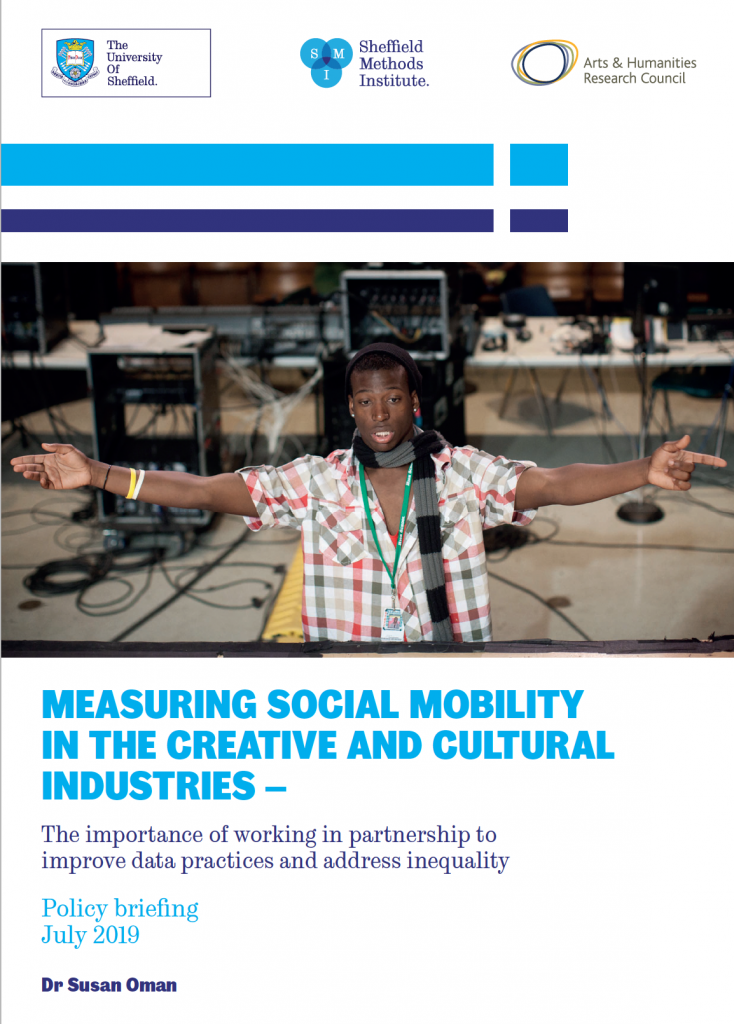Home » Introducing well-being data »
Communication is key to improving data, data practices and experiences
Equality monitoring, data capabilities and how to introduce measures of social mobility: two publications for policy and practitioners

Building an accurate picture of social inequality is key to understanding how to address it. Equality monitoring of the workforce across business sectors and policy domains is long-established, providing analyses such as the gender pay gap, for example. Yet, requests for people’s protected characteristics to understand diversity issues is frequently met with suspicion.
My working paper and policy briefing contains the outcomes of research on the main issues related to equality monitoring data. It focused on the cultural sector, as one increasingly criticised for inequalities in who is able to get in, and get on, in creative work.
These publications are the result of two years investigating how data are collected, analysed, valued, shared and published, and the quality and ethics of these data processes. The two publications review data capabilities in the sector and contain recommendations on how to rectify the absence of class and socio-economic measures from these data processes.
The working paper, with findings, recommendations and an accessible literature review, is aimed at the cultural sector: Improving data practices to monitor inequality and introduce social mobility measures – a working paper for the cultural sector
The policy briefing, aimed at the creative and cultural industries, that can inform all sectors and domains on equality monitoring: Measuring Social Mobility in the Creative and Cultural Industries – the importance of working in partnership to improve data practices and address inequality
Both publications outline ways to address existing metrics and data practices, explaining how it is possible to improve the experience of data collection and the quality of the data collected. They also present the outcomes from trialling 50 questions that generate data on various aspects of socio-economic inequalities. This can advise organisations, sectors and policy domains on which questions to introduce, and how to introduce them well to improve equality monitoring data.
